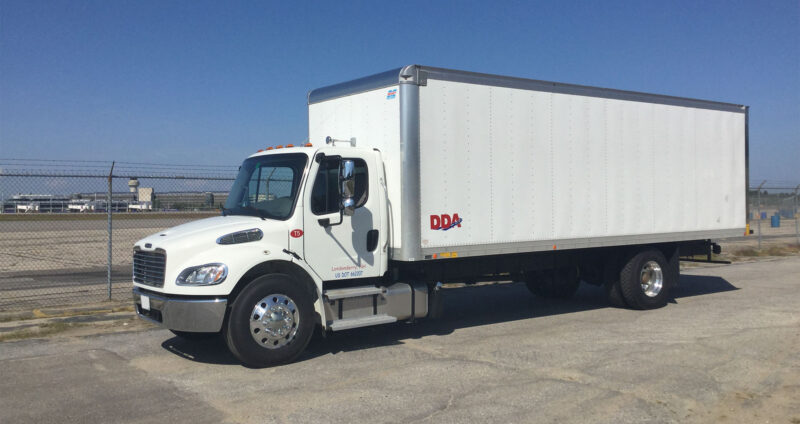
DDA Transport, a USPS supplier, announced recently that it has introduced six propane-fueled straight trucks to its fleet.
The move adds DDA to a growing number of USPS mail contractors who are incorporating propane vehicles into their fleets as a way to deliver the mail across the country.
“As a supplier to the US Postal Service, we are continually striving to find ways to protect the environment through sustainability efforts,” Dwayne Andreasen, president of DDA Transport, said. “Our fuel consumption is our biggest environmental concern, so the ability to lower this impact through propane autogas helps us achieve our short- and long-term goals.”
DDA has more than 160 vehicles in its fleet currently. Officials with the company said DDA recognizes the importance of reducing its carbon footprint and looked for a solution that would not increase its infrastructure requirements or add to its maintenance costs.
“Propane seemed to check all the boxes that we were searching for,” said Andreasen.
The trucks are powered by ROUSH CleanTech’s propane Autogas – a nontoxic, non-carcinogenic and non-corrosive fuel made domestically and readily abundant. The technology makes it a cost-effective solution for fleet operators in the United States, officials said.
“Propane offers a readily available, affordable and uncomplicated solution to reduce emissions,” Todd Mouw, executive vice president at ROUSH CleanTech, said.
The move is expected to save DDA $25,000 in fuel costs and an additional $15,000 in maintenance and uptime costs for each truck annually when compared to diesel fleet costs. Andreasen said the company will use the cost savings to add more propane vehicles to their fleet. DDA will work with Ferrellgas to install onsite propane fueling stations.
“We need onsite fueling because our trucks run on very strict schedules and are typically running from the early morning hours until the late evening,” Andreasen said. “Ferrellgas not only provided the fuel but also worked out a cost-effective solution by incorporating a fueling station into a long-term fuel contract.”